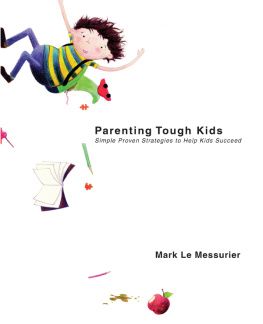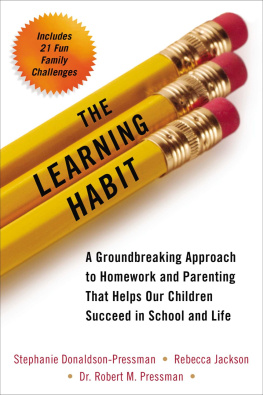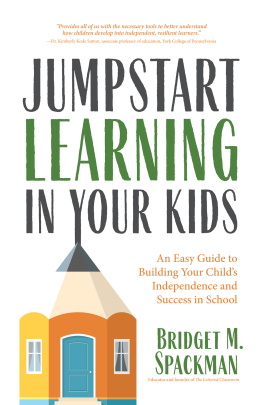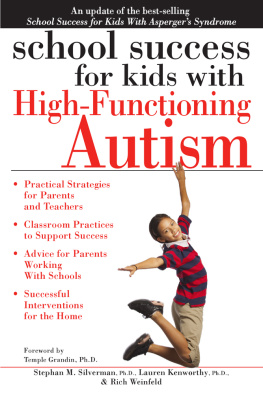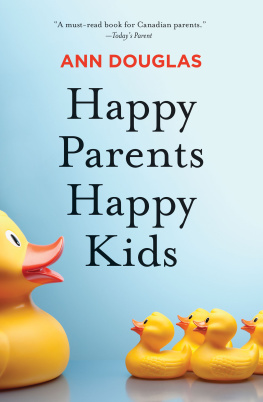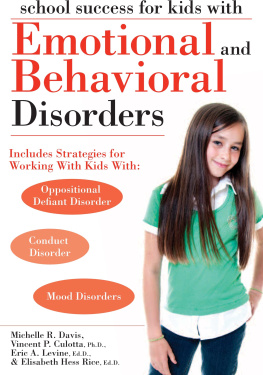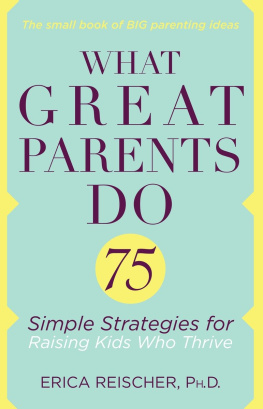Copyright 2007 by Mark Le Messurier
First Skyhorse Publishing edition 2015
All rights reserved. No part of this book may be reproduced in any manner without the express written consent of the publisher, except in the case of brief excerpts in critical reviews or articles. All inquiries should be addressed to Skyhorse Publishing, 307 West 36th Street, 11th Floor, New York, NY 10018.
Skyhorse Publishing books may be purchased in bulk at special discounts for sales promotion, corporate gifts, fund-raising, or educational purposes. Special editions can also be created to specifications. For details, contact the Special Sales Department, Skyhorse Publishing, 307 West 36th Street, 11th Floor, New York, NY 10018 or .
Skyhorse and Skyhorse Publishing are registered trademarks of Skyhorse Publishing, Inc., a Delaware corporation.
Visit our website at www.skyhorsepublishing.com.
10 9 8 7 6 5 4 3 2 1
Library of Congress Cataloging-in-Publication Data is available on file.
Cover design by Caroline Schrader
Print ISBN: 978-1-62914-775-8
Ebook ISBN: 978-1-63220-084-6
Printed in the United States of America
Table of Contents
Reproducible pages
Reproducible pages
Reproducible pages
Reproducible pages
About the Author Mark Le Messurier
Mark Le Messurier is a teacher, author and national conference presenter. He also is the recipient of the prestigious National Excellence in Teaching Award.
Parenting Tough Kids is his third book, but it is the first written exclusively for parents.
Marks second book, Cognitive Behavioral Training: A How-to Guide for Successful Behavior , was written for special education coordinators, teachers, teachers in training, school support staff, counselors, psychologists and health care professionals. This best-selling, practical resource addresses common problems that many students face regarding organization, remembering, self-awareness, motivation and emotional resilience.
Mark also has produced Reflections on Dyslexia , which is a teacher training and development film about dyslexia and ADHD (Attention Deficit Hyperactivity Disorder).
In 2000, Mark coauthored a book and DVD titled STOP & THINK Friendship . This resource was revised in 2002 and is currently published as Friendship Neighbourhood: STOP and THINK Workbook.
In 2006, the South Australian Catholic Behavior Education Team approached Mark to design and coordinate a mentoring program for their teachers. The program provides opportunities for teachers to develop skills for mentoring students who are experiencing learning, social or behavioral problems. These students, whose ages range from 6 to 18, are often the tough kids. who can benefit substantially from ongoing friendship and encouragement from a caring adult working within the school system. Mark describes the program as truly inspirational and will tell you what a privilege it is to work alongside such passionate teachers and educational support staff. In a very short time, a number of highly skilled school personnel were able to begin taking extra care of some of the most vulnerable students in the schools. The hope is that gradually more and more at-risk students will be supported by the amazing ripples that are beginning to radiate from this uplifting program.
Most days, Mark can be found working in his private practice at Fullarton House in Adelaide, South Australia. There, he provides counseling, mentoring, educational advice, academic remediation and social skills training for children and teens. Marks work focuses on strengthening the success of students often identified with learning issues, behavioral difficulties and personality disorders. His background encompasses 20 years in the classroom, which included special education, adult education, child-centered education and community education projects. It is easy to see why Mark received the prestigious National Excellence in Teaching Award.
Contact information:
www.marklemessurier.com.au
Email:
Tel: (08)8271 2899
FAX: (08)8373 7018
Acknowledgements
In recent years, my work has thrust me into the lives of countless families, and Ive been inspired by the resourcefulness of so many parents. Often they manage the challenging behaviors of their children fabulously well. Their collective wisdom has contributed greatly to the ideas presented in this book.
My gratitude also extends to my wife, Sharon, and my colleagues at Fullarton House, whose gentle interest buoyed my perseverance. Thank you Rose, John, Madhavi, Benita, Jane and Jenni for helping out with the editing. Your ideas, opinions and input were so appreciated.
My final acknowledgement is to Peggy Hammeken. Thank you for your confidence, sharing of resources and investment in this project, Peggy. Your help is invaluable in disseminating this information in the U.S. and internationally for the benefit of parents and educators.

Chapter 1
The Challenge of Parenting Tough Kids
For most parents, raising children is hard work. For some, the struggle with one child, or all of their children, threatens the familys cohesion. Children with challenges of one kind or another can, in turn, present great challenges for their parents. This book is meant to help alleviate many difficulties with practical, specific strategies to help children improve behavior and learning and develop emotional resilience and friendships. Then, the challenge of parenthood is compensated by the joy and satisfaction parents receive as their children emerge successfully into the world
To begin with, parenting skills are hugely more intricate than they may seem to be and involve much more than just knowing what to do. There is a fine line between parents who know the answers and those who know the answers and can also put the skills into action, even under pressure. When under pressure, most parents admit they succumb to the obvious parenting pitfalls, even though they know all about them. They blame their runaway emotions, which are driven by their deep love for their children.
So often, parents know they teeter between expecting too much or too little, or they find themselves interfering with their childrens decisions with too much helpful advice. They do this because they hope it will help their children become more responsible, meet expectations, increase friendships or improve their school grades. They also may be trying to improve family harmony. Eventually, most parents discover the elusive balance needed between saying and doing too little for their children and saying and doing too much. They discover they dont have to have all the answers, because the harder they work at finding them, the more likely they are to limit their childrens independent emergence into the world. All children need to engage with the world, experience problems, feel discomfort, find solutions and experience the good and not so good outcomes of their actions and decisions in order to develop robust and resilient emotional resources.
Poor parenting methods and family tensions certainly contribute to difficulties, but they are not the only causes. Many children just learn the hard way, or in a different way, so a thoughtful, consistent approach at home truly makes a difference. The difficulty for these children is more often in their own natures or styles. They may experience problems with memory, persistence, emotion or organization, and each of these difficulties can heavily impact their day-to-day functioning. Parents need to know this. In particular, the early teenage years can be a period of powerful control struggles. Developmentally, we expect children to flex their teen spirit for greater control, yet when it happens, the intense flashes of independence and defiance catch many parents off guard. For some, this can become a protracted adventure, in which adolescents take their families emotionally captive along the way.

